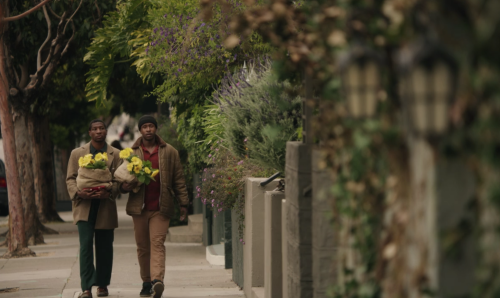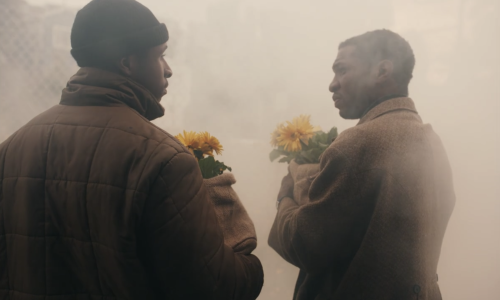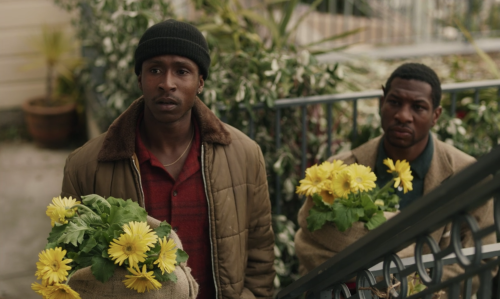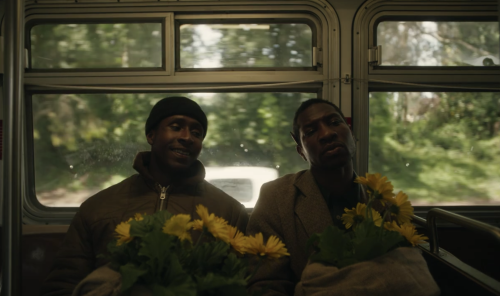Let’s Launch Some Science To Space!
Let’s launch some science to space!

The day has finally arrived. After years of work, a team of scientists is at Kennedy Space Center in the hopes of seeing their research liftoff to the International Space Station.

Join #NASAExplorers for the countdown, the emotion and, hopefully, the launch!
Watch episode 5 here:
Follow NASA Explorers on Facebook to catch new episodes of season 4 every Wednesday!
Make sure to follow us on Tumblr for your regular dose of space: http://nasa.tumblr.com
More Posts from Beautifulangelpirate and Others

TANZANIA. Zanzibar. 2019. A group of boys playing a game of soccer at the beach. © Sam Vox, via @leadafricaofficial










February 14th, 2020. Feminist activists protest in the streets of Queretaro (México). The motive was Ingrid Escamilla’s gruesome femicide and the indiference from the government towards the femicide epidemic (10 women are killed every day in Mexico, due to gender-based violence).
💜 As long as there is a subdued woman, I will not be a free woman. 💜

Deer are considered to be the sacred messengers of Shinto deities, and are often depicted in mandalas, as seen here. A white stag rides on a cloud, symbolizing his role as a messenger between the earth and the gods. On his saddle is a branch of the sacred sakaki tree and a mirror, which, along with the sword and jewel, is one of the three sacred symbols of Shinto. “Deer Mandala,” 1600s, Japan
Infelizmente nosso povo é tão ingênuo ou diria imbecil que boa parte da população admira esse genocida que está em disputa com Trump para ver que mata mais.
so... the brazilian health minister just resigned cause the president is against social distancing and thinks that corona is just a "little flu" (no, I'm not kidding) AND to make things even better (it looks like a soap opera guys omg) HE WANTS A FUCKING ARMY GENERAL IN THE POSITION
worst time to be a brazilian, are we a fucking joke to the motherfucker president? the answer is yes
OH I FORGOT THE BEST PART
his followers (aka bolsominions or gados) are convinced that corona virus is a communist conspiracy to overthrow the government (yeah, I'm serious)





The Connemara Marble: A Cross-Atlantic Connection Between Ireland and Pittsburgh

Fig. 1: Irish Dippy
Each March in celebration of St. Patrick’s Day, the full-size dinosaur replica of Dippy (Diplodocus carnegii) that stands guard outside the Carnegie Complex along Forbes Avenue in Oakland, is draped in an iconic Irish scarf (Fig. 1). Inside the classic halls of the Carnegie Complex is a green marble from County Galway, western Ireland. It is called Connemara Marble and is ubiquitous in the museum’s architectural floor designs. Before visiting Ireland for the first time in 2015, my only reference to the green Isle was watching a classic John Wayne and Maureen O’Hara movie, titled, The Quiet Man circa 1952. Much of the movie was filmed amongst the Connemara landscapes and many of the films iconic locations survive to this very day, such as the famous Quiet Man Bridge (Fig. 2). Moreover, researchers from the Carnegie Museum, National University of Ireland Galway, Connemara Marble Industries Ltd., Moycullen and Mount Holyoke College in Massachusetts, are investigating the significance of this Irish green marble in the architectural design of the Carnegie Institute Extension built by Alden & Harlow in 1907 (Fig. 3), Kollar et al., 2017; Feely et al., 2019, and Kollar et al., in review.

Fig. 2: Quiet Man bridge

Fig. 3: Connemara Map
The Streamstown Quarry in Western Ireland
A cross-Atlantic research connection between Ireland and Pittsburgh was initiated in the winter of 2015, when I visited Martin Feely at the National University of Ireland, Galway, an expert on the geology of the Connemara Marble, and Ambrose Joyce, owner of the Streamstown quarry. The objective was to determine the provenance and geology of the Carnegie’s Connemara Marble quarry and to compare the varieties of colored marbles used in the Carnegie’s floor tiles against other buildings with Connemara Marble from the Streamstown quarry (Fig. 4). The Connemara Marble can be found in the twelve public spaces, corridors, and private rooms, including the Hall of Sculptures, Grand Staircase, Green Room, President’s Office, and entrance corridors to the Carnegie Library of Pittsburgh. A unique use of Connemara Marble is as inlays in the design of the Thistle, the Scottish National flower in the Music Hall Foyer walls.

Fig. 4: Connemara Marble at the Carnegie Museum
The best way to get to the Streamstown Quarry is by car. The 50-mile drive, along the N59 from Galway to Clifden takes about an hour and 15 minutes through quaint villages and along scenic winding roadways. Understandably, it rained that day as it commonly does in County Galway, circa 45 inches per year. In comparison, Pittsburgh receives about 36 inches of rain per year. Like Pittsburgh, Galway has lush green landscapes because of the annual rainfall. Visible from the road are mountainous outcrops and lakes e.g. the Twelve Bens quartzite mountains formed over millions of years ago. Their present topography resulted from ice-sculpting during the last glacial maximum. The peat bogs in the low-lying regions formed 5,000 years ago. The history of the Streamstown quarry (Fig. 5) was always best recounted by the patriarch of the family Ambrose Joyce Sr., who sadly passed away in 2015 (Fig. 6 a, b). The entrance to the quarry is hidden from the main road and access is through a gate and then along a minor road shared by other land owners – access to the quarry is strictly by permission only, from Ambrose Joyce. The quarry and its buildings are surrounded by stockpiles of large marble blocks (Fig. 7). I walked around the quarry with Ambrose Joyce Jr. to see the old equipment and hear about the marble quarrying operations dating back to its late 19th century active period (Fig. 8). Then we viewed the modern quarry (Fig. 9) as Martin Feely explained the geology of the 650 Ma. pre-Cambrian limestone that would become green marble during the Ordovician Period some 470 million years ago.

Fig. 5: Streamstown Quarry

Fig. 6 a: Ambrose Joyce, Sr.

Fig. 6 b: Ambrose Joyce, Sr. and Albert Kollar

Fig. 7: Streamstown Quarry setting

Fig. 8: Streamstown Quarry history

Fig. 9: Albert Kollar, Martin Feely, Ambrose Joyce Jr.
We returned to Galway via the Connemara Marble Industries Ltd., Moycullen, County Galway to meet with the Joyce family (Fig. 10). At the Connemara Marble Industries Ltd., Moycullen marble souvenirs and jewelry are produced for the tourist trade using the marble extracted from Streamstown quarry (Fig. 11, 12, 13). Today, the ongoing global demand for Connemara Marble, for use in interior decoration projects, is supplied by the Italian company Antonlini. They source the marble from another Connemara marble quarry located several miles to the east of the Streamstown quarry.

Fig. 10: Ambrose Joyce Jr., Martin Feely, Grace Joyce, and Michael Joyce

Fig. 11: Christmas ornaments

Fig. 12: Coaster and Cube Shamrock

Fig. 13: Kennedy, Joyce, and rosary shamrock
Global Heritage Stone Resource
In 2019, the Connemara Marble was proposed as a Global Heritage Stone Resource with a citation to the Connemara Marble used in the Carnegie Museum (Wyle Jackson et al. 2020) This Irish Heritage Stone was a much sought-after green marble for use in architecture, buildings and sculptures in Ireland, England, and the United States from the mid-19th century to the early 20th century including the Carnegie’s Hall of Sculpture (Fig. 14 a) and the Founder’s Room (Fig. 14 b) floor designs.

Figs. 14 a and b: Floor tiles
Have a Happy St. Patrick’s Day.
Albert D. Kollar is the Collection Manager in the Section of Invertebrate Paleontology at Carnegie Museum of Natural History. Museum employees are encouraged to blog about their unique experiences and knowledge gained from working at the museum.

Stark White Paper Cities Made From Dozens of Cut and Layered Sheets of Paper
Artist Ayumi Shibata practices the Japanese art of paper cutting to create layered, three-dimensional sculptures. By using dozens (and sometimes over 100) sheets of paper, Shibata crafts intricate cityscapes and forests that are compiled into hand-bound books and contained inside glass jars. When illuminated by light, the tiers of white paper glow to express a cinematic depth.




Not only is paper a convenient and inexpensive material, but it also has deep significance for the artist. In Japanese, the word “kami” means “god” or “spirit” as well as “paper.” Shibata is not intimidated by the blankness of a fresh sheet of paper and instead sees limitless possibilities.

Each layer of paper art is cut out freehand, without the use of any pencil outline. All the artist needs to begin is the mental picture of the sculptural setting. Shibata tells My Modern Met, “I use my technique to express my thankfulness to the ‘Kami‘ for having been born in this life. I believe that through cutting paper, I purify my mind and soul.”




(cartoon Mike Peters)




My day of eating
Big breakfast: egg, fried tomatoes, avocado. Then a bun with bruneost and homemade strawberry jam. And the other half with hummus, deli ham and ruccula. Tea and some orange juice 👌🏻
Lunch: skyr yoghurt with cereal
Dinner: fish pasta with tomato and bechamel sauce, and a bit of salad on the side




The Last Black Man in San Francisco (2019) dir. Joe Talbot
-
 crookedbouquetchopshop liked this · 1 year ago
crookedbouquetchopshop liked this · 1 year ago -
 randyranks reblogged this · 5 years ago
randyranks reblogged this · 5 years ago -
 randyranks liked this · 5 years ago
randyranks liked this · 5 years ago -
 bookninja-pi liked this · 5 years ago
bookninja-pi liked this · 5 years ago -
 mortallyshadowydreamland liked this · 5 years ago
mortallyshadowydreamland liked this · 5 years ago -
 lollisafari liked this · 5 years ago
lollisafari liked this · 5 years ago -
 generalterenzi200 liked this · 5 years ago
generalterenzi200 liked this · 5 years ago -
 den1990 reblogged this · 5 years ago
den1990 reblogged this · 5 years ago -
 getonmybookshelf liked this · 5 years ago
getonmybookshelf liked this · 5 years ago -
 weird-is-all-ive-got reblogged this · 5 years ago
weird-is-all-ive-got reblogged this · 5 years ago -
 beautifulangelpirate reblogged this · 5 years ago
beautifulangelpirate reblogged this · 5 years ago -
 beautifulangelpirate liked this · 5 years ago
beautifulangelpirate liked this · 5 years ago -
 ilinit liked this · 5 years ago
ilinit liked this · 5 years ago -
 rashmansblog liked this · 5 years ago
rashmansblog liked this · 5 years ago -
 beruthiel reblogged this · 5 years ago
beruthiel reblogged this · 5 years ago -
 northwestphotag1 liked this · 5 years ago
northwestphotag1 liked this · 5 years ago -
 whitecatnatalie liked this · 5 years ago
whitecatnatalie liked this · 5 years ago -
 bigsportstacogoop-blog liked this · 5 years ago
bigsportstacogoop-blog liked this · 5 years ago -
 delightfulpaperpost liked this · 5 years ago
delightfulpaperpost liked this · 5 years ago -
 nigthmaredonut liked this · 5 years ago
nigthmaredonut liked this · 5 years ago -
 alittleasteroide liked this · 5 years ago
alittleasteroide liked this · 5 years ago -
 catyuy reblogged this · 5 years ago
catyuy reblogged this · 5 years ago -
 dionysus-philosophy liked this · 5 years ago
dionysus-philosophy liked this · 5 years ago -
 chickenscratch42 liked this · 5 years ago
chickenscratch42 liked this · 5 years ago -
 waloboy liked this · 5 years ago
waloboy liked this · 5 years ago -
 deepuniversitysportsprune liked this · 5 years ago
deepuniversitysportsprune liked this · 5 years ago -
 tracksuitmafia-bro liked this · 5 years ago
tracksuitmafia-bro liked this · 5 years ago -
 stupidification liked this · 5 years ago
stupidification liked this · 5 years ago -
 ltnagle liked this · 5 years ago
ltnagle liked this · 5 years ago -
 screwtheprinceimtakingthehorse reblogged this · 5 years ago
screwtheprinceimtakingthehorse reblogged this · 5 years ago -
 shrekworshipper liked this · 5 years ago
shrekworshipper liked this · 5 years ago -
 knownvariable reblogged this · 5 years ago
knownvariable reblogged this · 5 years ago -
 man0fthemoon liked this · 5 years ago
man0fthemoon liked this · 5 years ago -
 geamohr liked this · 5 years ago
geamohr liked this · 5 years ago -
 someoneintheinternet liked this · 5 years ago
someoneintheinternet liked this · 5 years ago -
 stargazingbooklover liked this · 5 years ago
stargazingbooklover liked this · 5 years ago -
 dragonfromthewoodlands liked this · 5 years ago
dragonfromthewoodlands liked this · 5 years ago -
 omlette87 reblogged this · 5 years ago
omlette87 reblogged this · 5 years ago -
 hotbedofsin liked this · 5 years ago
hotbedofsin liked this · 5 years ago -
 toriluvsfics liked this · 5 years ago
toriluvsfics liked this · 5 years ago